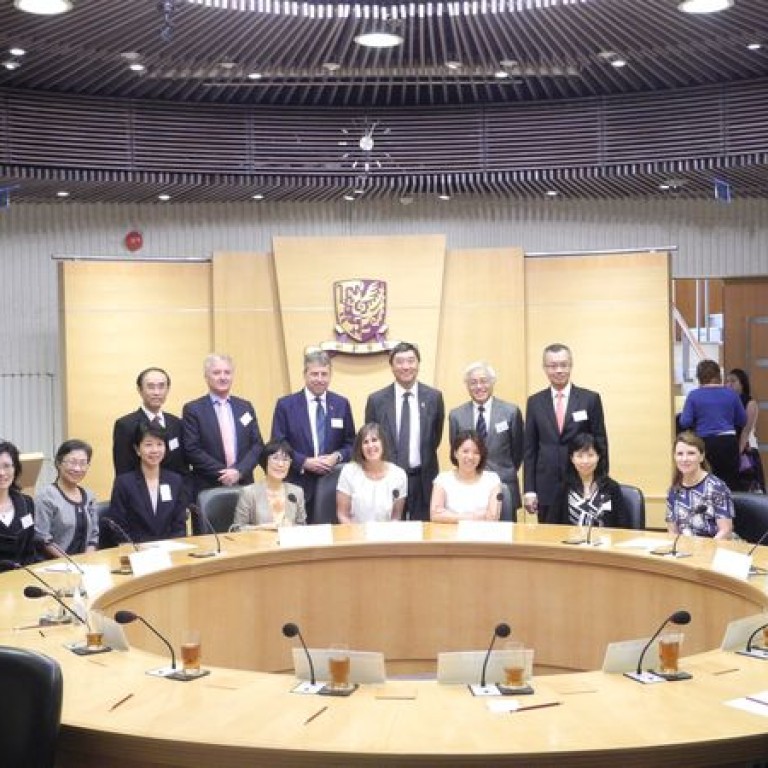
Call for more ‘golden skirts’ in tertiary education
A round-table discussion has shed light on issues that women in senior leadership roles in higher education face today.
A round-table discussion has shed light on issues that women in senior leadership roles in higher education face today.
The event was supported by the British Council and co-organised by the Gender Research Centre, a research facility set up in 1985 and the first and only course provider of the Gender Studies Programme (GRS).
Although much has already been done to promote the status of female leadership in higher education, there is still room for improvement. The opening remarks by Professor Fanny Cheung, pro-vice-chancellor at Chinese University (CUHK), revealed dismaying gender statistics. In the eight University Grants Committee (UGC)-funded tertiary institutions in the city, just 4 per cent of deans and only 13 per cent of provosts or vice-presidents are women.
Professor Janet Beer, previously vice-chancellor at Oxford Brookes and current vice-chancellor of the University of Liverpool, discussed practical steps that have been implemented in Britain to tackle this gender imbalance at the very top of the management ladder. Amongst other things, Beer highlighted the positive impacts of Aurora, a women-only leadership training programme, particularly for those aged 30-39, a time when women stereotypically fall out of the workforce and cause a “leak in the pipeline”.
Beer also explained the ECU’s Athena SWAN Charter drawn up by the Equality Challenge Unit (ECU), which works for equality and diversity for staff and students in UK higher education. The charter provides support and guidance for women in academic roles in both STEMM (science, technology, engineering, maths and medicine) and ABHSSL industries (arts, business, humanities, social sciences and law).
According to Susanne Choi, co-director at the Gender Research Centre at CUHK, over the past 10 years, female faculty representation has been fairly flat. As of 2015, 37 per cent held full professoriate titles, 32 per cent were associate professors, and 16 per cent were professors, while only 12 per cent held the title of assistant professor. Obstacles to gender equality in the workplace need to be tackled before women can be promoted to leadership positions. Beer says this drive for what she calls “golden skirts” will require a shift in attitudes, cultural change, and a mass transformation of organisational structure.
